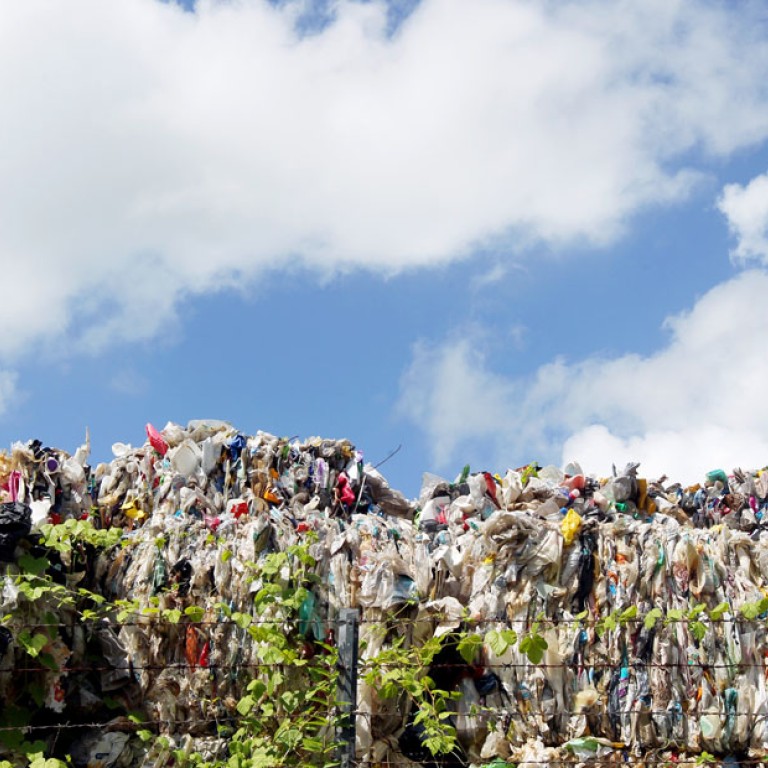
Waste charging necessary to develop a recycling mentality
Our rubbish is forgotten after it is put out for collection. Those who live near the landfills where it ends up see and smell things differently. One million Shenzhen residents, hundreds of lawmakers among them, claim to know that only too well; they have launched a campaign against planned expansion of the dump in Tuen Mun after a fire in November sent noxious fumes drifting north. Their objections add to local protests against enlargement of other tips and construction of incinerators, leaving the government little alternative than to push resolutely ahead with implementation of measures centred on waste disposal charging and recycling.
Our rubbish is forgotten after it is put out for collection. Those who live near the landfills where it ends up see and smell things differently. One million Shenzhen residents, hundreds of lawmakers among them, claim to know that only too well; they have launched a campaign against planned expansion of the dump in Tuen Mun after a fire in November sent noxious fumes drifting north. Their objections add to local protests against enlargement of other tips and construction of incinerators, leaving the government little alternative than to push resolutely ahead with implementation of measures centred on waste disposal charging and recycling.
The protests are understandable; no one wants to live or work near a rubbish tip. But with our three landfills reaching capacity in 2016, fleshing out and fine-tuning the government's blueprint for waste disposal has to be a priority. The mix of charging, recycling, incineration and landfill expansion envisaged is the best way to wean our city off its reliance on burying its trash. While the protests and courts are being negotiated, authorities have to forge ahead.
A four-month consultation on ways to charge for household waste ends next Friday. It offers three models: making individual households buy specific rubbish bags and dispose of them at a designated time and place; charging fees by weight or volume for disposing of each residential building's waste and making occupants share the cost; or a combination of both. By charging for disposal, either through the purchase of bags or the amount thrown away, authorities hope people will be less wasteful. Chief Executive Leung Chun-ying furthered that commitment in his policy address last Wednesday, announcing a steering committee on recycling and a HK$1 billion fund.
Determining the best method and a reasonable charge will not be difficult given the expertise in the community. Just as with landfills and incinerators, there will be objections; not everyone will be open to paying for what they have so far had for free. But time is short. The sooner charging is implemented, the quicker the development of a recycling mentality and an industry to handle recyclables.
Being less wasteful and recycling are not enough; incineration and landfill expansion are also necessary. The cleanest and most efficient methods have to be sourced. Residents will have to be better educated about sustainable waste disposal. They will also have to be more understanding.

